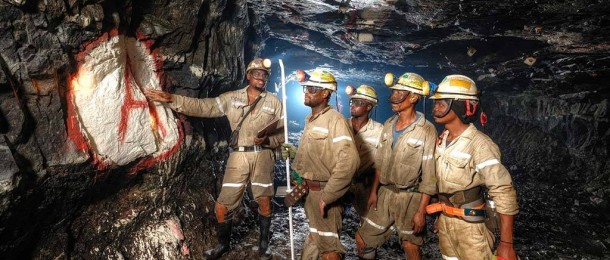Zimbabwe is among 10 least attractive mining investment destinations, ranking 106 out of 112 countries, according to the latest Fraser Institute survey.
Among the 10 lowly- rated jurisdictions, the Canada-based think tank included Angola, Côte d'Ivoire and Madagascar.
In its previous 2012/13 survey, Zimbabwe was also among the bottom 10 at 91 out of 96 countries.
Côte d'Ivoire was a new addition to this year's survey.
Madagascar fell in the rankings from 85th in 2012/2013 to 103 as respondents' perceptions about it worsened, specifically over trade barriers and the taxation regime.
The Democratic Republic of Congo, which was amongst the least in the 2012/2013 rankings,
improved its policy perception index (PPI) score and ranking, moving up from 93rd of 96 in 2012/2013 to 85th out of 112 countries.
Although neighbouring South Africa still ranked 64th in the world, unchanged from the previous survey, the number of jurisdictions surveyed have increased to 112, which means its ranking has improved in relative terms.
This comes as over the years Zimbabwe has experienced a pronounced investor flight due to bad economic policies, particularly the indigenisation policy - compelling foreigners to cede majority shareholding to black locals.
A president of a miner - with less than $50 million in annual revenue - operating in Zimbabwe was quoted in the survey saying the business environment was "totally unstable, does not allow repatriation of profits, black economic empowerment takeover of farms, now businesses and mines."
The survey is an attempt by the institute to find out how mineral endowments and government policies affect mining companies' investments in exploration and is highly regarded as a good reflection of foreign investor perceptions.
The Fraser Institute explained that while geological and economic considerations were important factors in mineral exploration, policy climate was also an important investment consideration.
The PPI, which measured overall policy attractiveness by surveying 690 respondents across 112 jurisdictions from September to December, was composed from survey
responses to questions about policy factors that affected investment decisions.
Policy factors examined included certainty concerning the administration of current regulations, environmental regulations, regulatory duplication, the legal system and taxation regime, uncertainty concerning protected areas and disputed land claims, infrastructure, socioeconomic and community development conditions, trade barriers, political stability, labour regulations, the quality of the geological database, security, and labour and skills availability.
"The general mining climate in sub-Saharan Africa, in my opinion, is one largely dominated by uncertainty.
"The rules of the game are constantly changing therefore making strategic decisions regarding long term projects is really complex. However... the pure mineral potential... will always attract investors and keep the mining sector moving forward," said an unnamed consulting company quoted in the survey.
Analysts say despite vast mineral resources, the country remains in economic doldrums due to poor economic policies.
"Zimbabwe may be a difficult place for mining firms to invest new capital at the moment, but those with their feet already atop its rich soil are sticking around," said a mining analyst who requested anonymity.
Government has already escalated pressure to have international mining companies implement the indigenisation policy thresholds which compels them to cede 51 percent shareholding to locals and this has severely hampered interested foreign investors.
- dailynews
 Concern over Masvingo black market
Concern over Masvingo black market  Kenya declares three days of mourning for Mugabe
Kenya declares three days of mourning for Mugabe  UK's Boris Johnson quits over Brexit stretegy
UK's Boris Johnson quits over Brexit stretegy  SecZim licences VFEX
SecZim licences VFEX  Zimbabwe abandons debt relief initiative
Zimbabwe abandons debt relief initiative  European Investment Bank warms up to Zimbabwe
European Investment Bank warms up to Zimbabwe  Young Investment Professional (YIP) Graduate Programme 2019
Young Investment Professional (YIP) Graduate Programme 2019 











 Young Investment Professional (YIP) Graduate Programme 2019
Young Investment Professional (YIP) Graduate Programme 2019
Editor's Pick